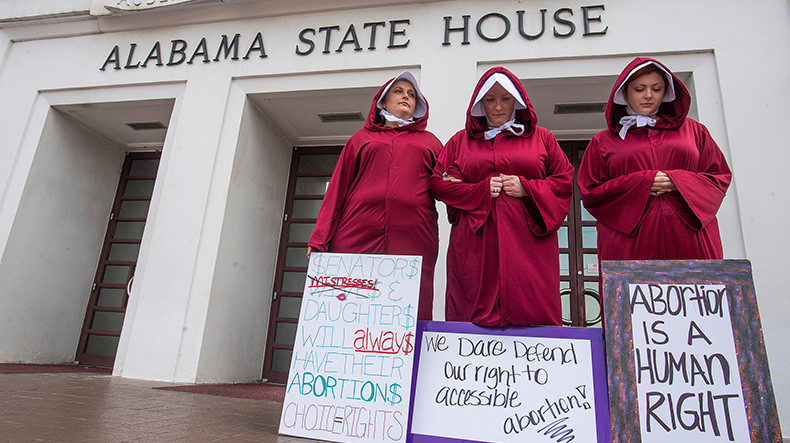
Lawmakers vote to effectively ban abortion in Alabama
The Alabama Senate approved a measure on Tuesday that would outlaw almost all abortions in the state, setting up a direct challenge to Roe v. Wade, the case that recognized a woman’s constitutional right to end a pregnancy, The New York Times reports.
The legislation bans abortions at every stage of pregnancy and criminalizes the procedure for doctors, who could be charged with felonies and face up to 99 years in prison. It includes an exception for cases when the mother’s life is at serious risk, but not for cases of rape or incest — a subject of fierce debate among lawmakers in recent days.
The House approved the measure — the most far-reaching effort in the nation this year to curb abortion rights — last month. It now moves to the desk of Gov. Kay Ivey, a Republican. Although the governor has not publicly committed to signing the legislation, many Republican lawmakers expect her support.
In an email on Tuesday night, a spokeswoman for the governor, Lori Davis Jhons, said Ms. Ivey would “withhold comment until she has had a chance to thoroughly review the final version of the bill that passed.”
Opponents have vowed to challenge the measure in federal court if it becomes law. Even the legislation’s supporters expect that a lower court will block the measure. But it was drafted with exactly that in mind. The ban’s architects, reflecting the rising confidence of abortion critics nationwide after the appointment of Brett M. Kavanaugh to the Supreme Court, hope that the justices will use the case to reconsider the central holding in Roe and allow the Alabama measure to take effect.
Democrats and abortion-rights advocates say that the Alabama measure would drive the procedure underground, endangering the lives of women and girls and disproportionately affecting poor and minority Alabamians.
“We want abortions to be safe, and we want them to be few, but it should be legal, because there will be abortions,” said Senator Linda Coleman-Madison, a Democrat and one of the four women in the 35-member Senate.
Other state measures to restrict abortion rights have advanced in the South and the Midwest this year and invited legal fights. Already, the governors of Georgia, Kentucky, Mississippi and Ohio have signed fetal heartbeat bills. And Arkansas moved up the cutoff point for legal abortions to 18 weeks of pregnancy, from 20 weeks.
Newsfeed
Videos






























